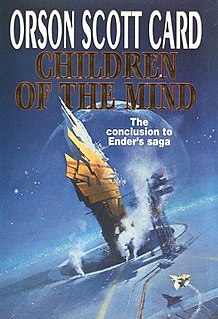| Lusitania | ||||
|---|---|---|---|---|
 | ||||
| Studio album by | ||||
| Released | July 1, 2003 | |||
| Label | Equal Vision Records | |||
| Fairweather chronology | ||||
| ||||
| Review scores | |
|---|---|
| Source | Rating |
| Allmusic | |
Lusitania is the second studio album from punk rock band Fairweather.
| Lusitania | ||||
|---|---|---|---|---|
 | ||||
| Studio album by | ||||
| Released | July 1, 2003 | |||
| Label | Equal Vision Records | |||
| Fairweather chronology | ||||
| ||||
| Review scores | |
|---|---|
| Source | Rating |
| Allmusic | |
Lusitania is the second studio album from punk rock band Fairweather.
| | This article about a punk rock album from the 2000s is a stub. You can help Wikipedia by expanding it. |

Lusitania or Hispania Lusitana was an ancient Iberian Roman province located where modern Portugal and part of western Spain lie. It was named after the Lusitani or Lusitanian people.
Portuguese may refer to:

Speaker for the Dead is a 1986 science fiction novel by American writer Orson Scott Card, an indirect sequel to the novel Ender's Game. The book takes place around the year 5270, some 3,000 years after the events in Ender's Game. However, because of relativistic space travel at near-light speed, Ender himself is only about 35 years old.

Children of the Mind (1996) is a novel by American author Orson Scott Card, the fourth in his successful Ender's Game series of science fiction novels that focus on the character Ender Wiggin. This book was originally the second half of Xenocide, before it was split into two novels.

Xenocide (1991) is a science fiction novel by American writer Orson Scott Card, the third book in the Ender's Game series. It was nominated for both the Hugo and Locus Awards for Best Novel in 1992. The title is a combination of 'xeno-', meaning alien, and '-cide', referring to the act of killing, together meaning the act of killing populations of aliens; comparable to genocide.
Pulitzer Prizes were first presented in 1917. There were initially four categories; others that had been specified in Joseph Pulitzer's request were phased in over the next few years. The winners were selected by the trustees of Columbia University. The first Pulitzer Prize winner, French Ambassador Jean Jules Jusserand, who had written the best book about American history, won $2,000. Herbert Bayard Swope won a $1,000 prize for reporting.

RMS Lusitania was a British ocean liner that was sunk on 7 May 1915 by a German U-boat 11 miles (18 km) off the southern coast of Ireland, killing 1,198 passengers and crew. The sinking occurred about two years before the United States declaration of war on Germany. Although the Lusitania sinking was a major factor in building support for a war, war was eventually declared only after the Imperial German Government resumed the use of unrestricted submarine warfare against American shipping in an attempt to break the transatlantic supply chain from the USA to Britain, and after the Zimmermann Telegram.
Lusitanian mythology is the mythology of the Lusitanians, the Indo-European people of western Iberia, in the territory comprising most of modern Portugal, Galicia, Extremadura and a small part of Salamanca.

The Lusitanians were an Indo-European people living in the west of the Iberian Peninsula prior to its conquest by the Roman Republic and the subsequent incorporation of the territory into the Roman province of Lusitania.

Charles Frohman was an American theatre manager and producer, who discovered and promoted many stars of the American stage. Notably, he produced Peter Pan, both in London and the US, the latter production starring Maude Adams who would be strongly identified with the part.

RMS Mauretania was an ocean liner designed by Leonard Peskett and built by Wigham Richardson and Swan Hunter for the British Cunard Line, launched on the afternoon of 20 September 1906. She was the world's largest ship until the completion of RMS Olympic in 1911. Mauretania became a favourite among her passengers. She captured the Eastbound Blue Riband on her maiden return voyage in December 1907, then claimed the Westbound Blue Riband for the fastest transatlantic crossing during her 1909 season. She held both speed records for 20 years.

Nabia was the goddess of rivers and water in Gallaecian and Lusitanian mythology, in the territory of modern Galicia (Spain), Asturias (Spain) and Portugal.

The Old Head of Kinsale is a headland near Kinsale, County Cork, Ireland.

The Sinking of the Lusitania (1918) is an American silent animated short film by cartoonist Winsor McCay. It is a work of propaganda re-creating the never-photographed 1915 sinking of the British liner RMS Lusitania. At twelve minutes it has been called the longest work of animation at the time of its release. The film is the earliest surviving animated documentary and serious, dramatic work of animation. The National Film Registry selected it for preservation in 2017.
The Sport Clube Lusitânia is a professional sports club located in the municipality of Angra do Heroísmo, on the island of Terceira, in the Portuguese archipelago of the Azores.

The Mauritanian shrew is a species of mammal in the family Soricidae. It is found in Algeria, Burkina Faso, Eritrea, Ethiopia, Gambia, Guinea, Guinea-Bissau, Mali, Mauritania, Morocco, Niger, Nigeria, Senegal, Sierra Leone. Its natural habitats are dry savanna and subtropical or tropical dry shrubland.
Gary Gentile is an American author and pioneering technical diver.

VideoRay ROVs are a series of inspection class underwater submersible remotely operated underwater vehicles (ROV). VideoRay ROVs are operated from a suitcase-sized control panel connected to either a copper or fiber-optic tether which is then connected to the submersible.
Leigh Bishop is an explorer and deep sea diver known for his deep shipwreck exploration and still underwater photography.

The sinking of the Cunard ocean liner RMS Lusitania occurred on Friday, 7 May 1915 during the First World War, as Germany waged submarine warfare against the United Kingdom which had implemented a naval blockade of Germany. The ship was identified and torpedoed by the German U-boat U-20, took on a heavy starboard list, and sank in 18 minutes. The vessel went down 11 miles (18 km) off the Old Head of Kinsale, Ireland, killing 1,198 and leaving 761 survivors. The sinking turned public opinion in many countries against Germany, contributed to the American entry into World War I and became an iconic symbol in military recruiting campaigns of why the war was being fought.